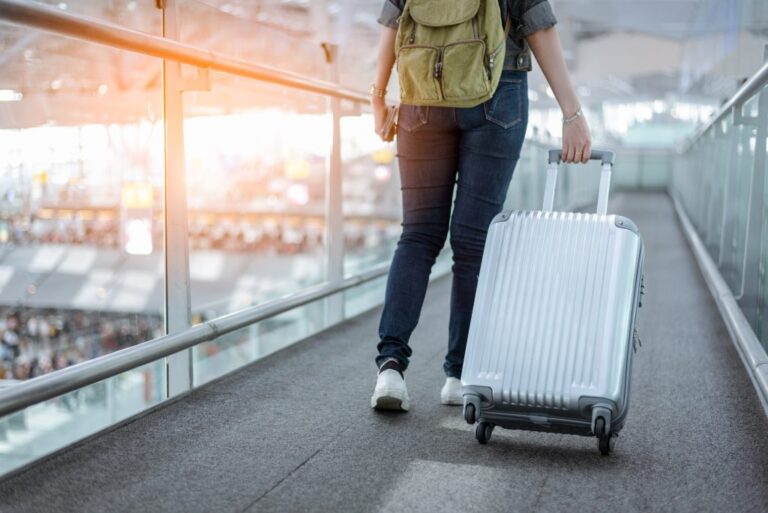You can also listen to this podcast on iono.fm here.
ADVERTISEMENT
CONTINUE READING BELOW
Download the free LiSTN audio app on Google Play, Apple or here.
JEREMY MAGGS: This now a follow-up to a story earlier this week, and in a statement that we’ve got, the Association of Southern African Travel Agents (Asata) says it wants to reassure travellers that fraud cases in the industry remain rare. We spoke earlier to a parliamentarian who is calling for greater regulation of the industry. Otto de Vries is the chief executive officer of the association and joins me now on Moneyweb@Midday. Otto, where in your observation then does most travel industry fraud tend to occur?
OTTO DE VRIES: Good afternoon, Jeremy. Look, it appears, as in most cases, the opportunists and the fraudsters are operating around leisure travel. We are not really seeing this play out in the corporate travel space.
It’s very much a leisure thing, and I think that’s really where I feel the most for people who have been taken for a ride with these scammers, because that’s their hard-earned money and their savings that they’ve put in. For many of them, it’ll be a once-in-a-lifetime trip.
It’s extremely disappointing that we have people who are, if you will, abusing the opportunity to deliver, or in this case not to deliver, meaningful travel services and products to the consumer.
JEREMY MAGGS: What are the common characteristics then of such fraud?
OTTO DE VRIES: Well, a couple of things that we have consistently made recommendations about when it comes to looking for fraudsters is that you need to ensure that they’re actually a fully registered business and that they have business bank accounts. You should be sure that they are able to process payments using credit cards.
We’ve seen time and time again that the scammers are generally able to convince consumers to make EFT payments into their bank accounts.
In many cases, we’ve even heard that those bank accounts are in the name of the individuals and not even a company’s name. So those are big alarm bells. The great thing about being able to pay with a credit card is that you have the chargeback facilities. So if the services are not rendered, you’d have the ability to recover those funds through your bank.
JEREMY MAGGS: So in the face of fraud cases that we reported on earlier this week, and particularly with Muslims going to Mecca, that’s where the focus seemed to be, do you support additional measures or reforms to strengthen self-regulation such as it exists within the industry, or is there a point to greater government regulation in this respect?
OTTO DE VRIES: Jeremy, I truly believe that we as Asata are very well placed to facilitate and continue to provide a level of self-regulation. We have been in that function since 1956. We represent almost 99% of the industry in terms of market share.
ADVERTISEMENT
CONTINUE READING BELOW
We have a lot of checks and balances that our members need to comply with in order to not only attain, but retain their membership, including financial reviews, including the need to comply with our code of conduct, with our constitution.
I think it’s very important for the travellers and the travelling consumers out there to note that in the past decade, not one of these incidents has been as a result of one of our members. So in every single case that we’ve seen over the years, it has always been someone who is not an Asata member. Now, there are never any guarantees.
Fraud can take place in any way, shape or form, and it’s not unique to our sector, but at least with us, you have the opportunity to mitigate the risk of any fraudulent behaviour by engaging with an Asata travel agent.
JEREMY MAGGS: You argue that increased regulation could damage the industry. How do you plan to address this issue?
OTTO DE VRIES: Well, I think it’s incumbent on the industry as a collective to make sure that we take the necessary steps to not only encourage the travelling consumer to look out for the Asata brand but also to ensure that we build up sufficient credibility in the eyes of the consumer, that the confidence and the trust is there and will continue to be there. Certainly, these conversations help to support those efforts.
The industry will be getting together in the next couple of weeks under the Asata banner to have a number of discussions around the way forward and certainly, this issue around fraud and scamsters will come up.
We have these discussions on a regular basis because we need to ensure that wherever possible, we deliver the right kind of self-regulation that meets the industry and the consumer’s needs. It is obviously time that we do a review of that again.
JEREMY MAGGS: Otto de Vries from the Association of Southern African Travel Agents, thank you very much indeed.

